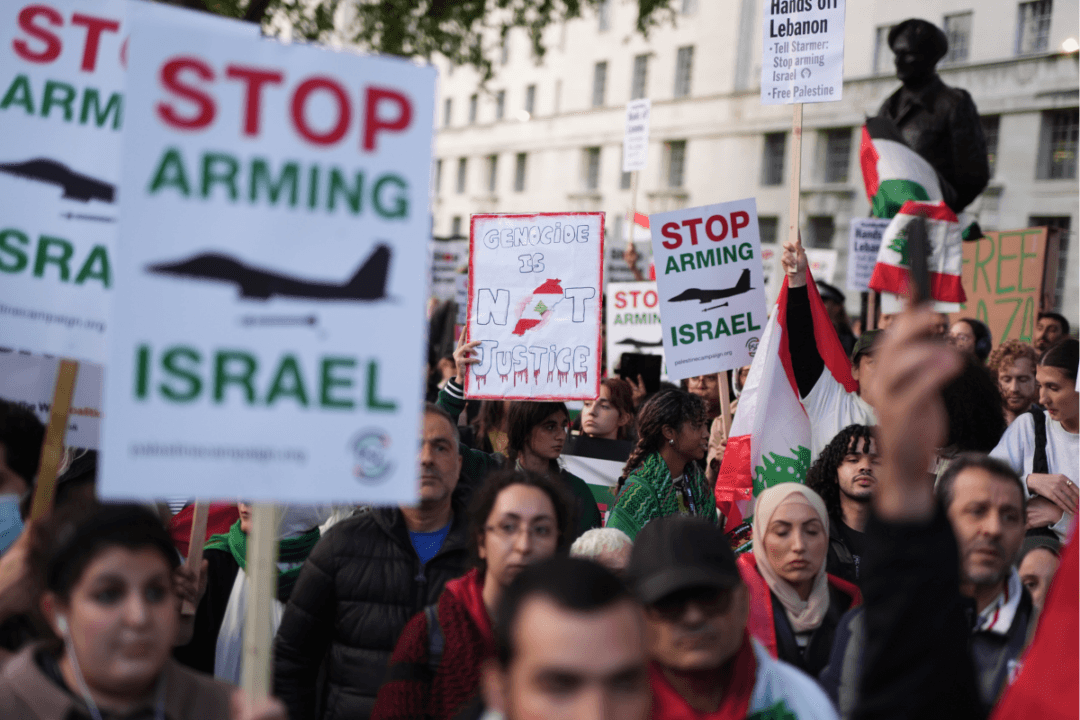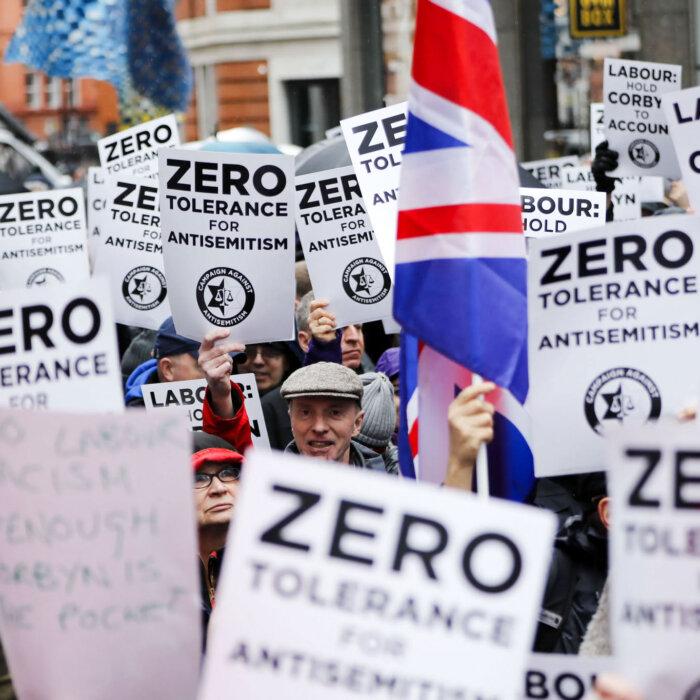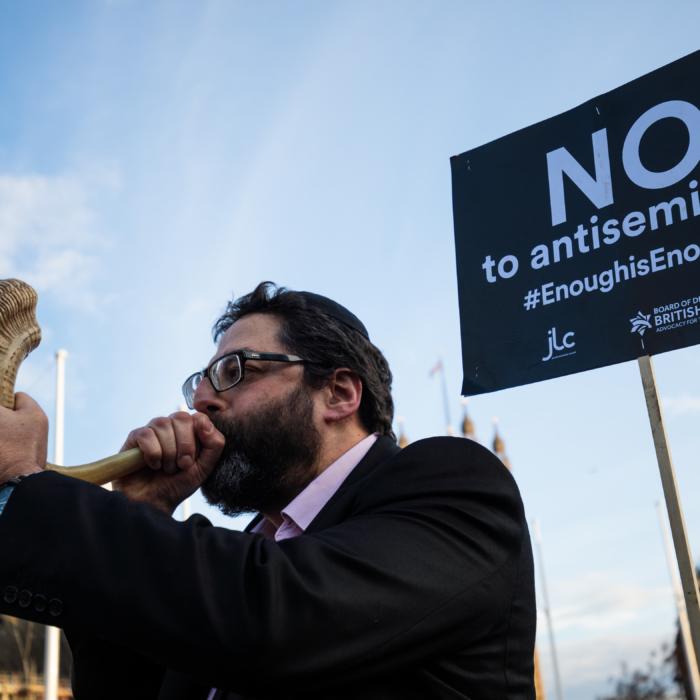Nearly 1 in 10 people aged 18 to 24 have a favourable view of the Hamas terror group, a YouGov study commissioned by the Campaign Against Antisemitism (CAA) has found.
When asked if they had a favourable view of Hamas, 9 percent of young people said they did—three times that (3 percent) for all respondents on average.
The trend continues with other questions related to views on Hamas, including 13 percent of younger people saying they do not believe reports that Hamas killed 1,200 people in the Oct. 7, 2023, attacks, compared to 7 percent of the wider British public.
Some 16 percent of young people believe the terror attacks were justified, compared with 7 percent on average. More than one-quarter (28 percent) of people who identify as “very left-wing” think the attacks were justified.
Extremism ‘Becoming Normalised’
The results come on the day marking one year since the Hamas terror attacks on Israel where 1,200 Israelis were killed and 250 captured, which triggered Israel’s military action in the Gaza Strip to defeat the terror group and retrieve those held hostage.The CAA’s spokesperson said “British society is changing before our eyes,” with extremism “becoming normalised.”
“Most alarming of all, our young people are becoming radicalised at a far greater rate than the rest of the population, sympathising with terrorists and espousing extreme anti-Jewish racism,” the spokesperson said.
Other findings from the survey showed that 9 percent of young people do not believe Jewish people can be trusted as much as other British people in business, more than double (4 percent) of the general public.
Rise in Anti-Semitism
Prime Minister Sir Keir Starmer described Oct. 7, 2023, as “the darkest day in Jewish history since the Holocaust.”Starmer said in a statement on Sunday: “One year on from these horrific attacks we must unequivocally stand with the Jewish community and unite as a country. We must never look the other way in the face of hate.”
Arrests at Pro-Palestine Protest
Saturday saw the return of pro-Palestine protests, which have been occurring on weekends in London since the terror attacks last year.Scotland Yard also said it was investigating posts shared on social media of people holding placards with messages of support for Hezbollah.
Calls for Ceasefire
The conflict became a multi-front war for Israel almost immediately, with Hezbollah firing rockets into northern Israel from southern Lebanon a day after the terror attack. Israel also conducted strikes against Houthi targets in Yemen last month, and was attacked by Iran which fired nearly 200 ballistic missiles at the Jewish state on Oct. 1.The prime minister has said that he stands firm in his commitment to bring the remaining hostages home, but reiterated his call for “immediate ceasefires” in the Gaza Strip and Lebanon.
Asked about Starmer’s call for a cessation of fighting, Israel’s ambassador to the UK, Tzipi Hotovely, said she does not know “how a ceasefire takes us forward to a place where Israelis can live safely.”
Hotovely said on BBC Radio 4’s “Today” programme on Monday: “We are in a point today that after 11 months of negotiation, of giving a chance to diplomacy in the northern border, Hezbollah was firing non-stop since Oct. 8 on Israeli cities.
“I don’t understand what type of solution is being offered by people that are offering ceasefire at the moment our hostages are still in Gaza, how ceasefire will bring them back when we’re dealing with a terror organisation.”
“Israel cannot afford another seventh of October,” she added.







